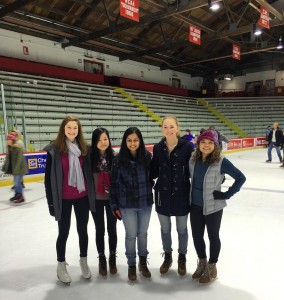This week’s talk on the Finger Lakes Land Trust, led by one of our own, Andy Zepp, B.A. ILR ’85 and M.P.S. Natural Resources ’89, was incredible educational on the topic of Upstate New York sustainability and the methods by which the gorges land is preserved.
Andy Zepp is the executive director of the Finger Lake Land Trust and manages an enormous network of preserved land, countless selfless volunteers, and a small group of employees working towards sustaining the land that make Upstate New York. Going into the talk with little prior knowledge about how land is sustained in America, I learned a lot about land trusts and the way they function. It surprised me the most that land trusts are not government mandated and that often times, land trusts are formed piece by piece, only a little segment of land at at time, most commonly through deals with the current owners to preserve their land and promise to sell to the land trust when they are ready to sell.
What amazed me most was where the land trust gets their funding from to purchase such large chunks of land. They get most of their funding from their 1000 organization members. I did not know that local citizens would be so passionate about conserving the land and I am certainly grateful that they are!

